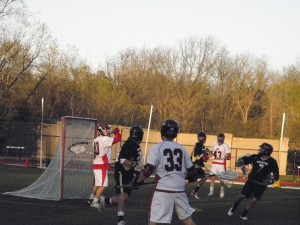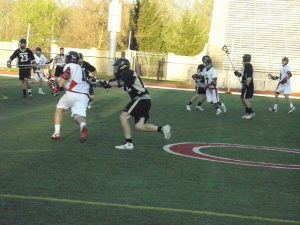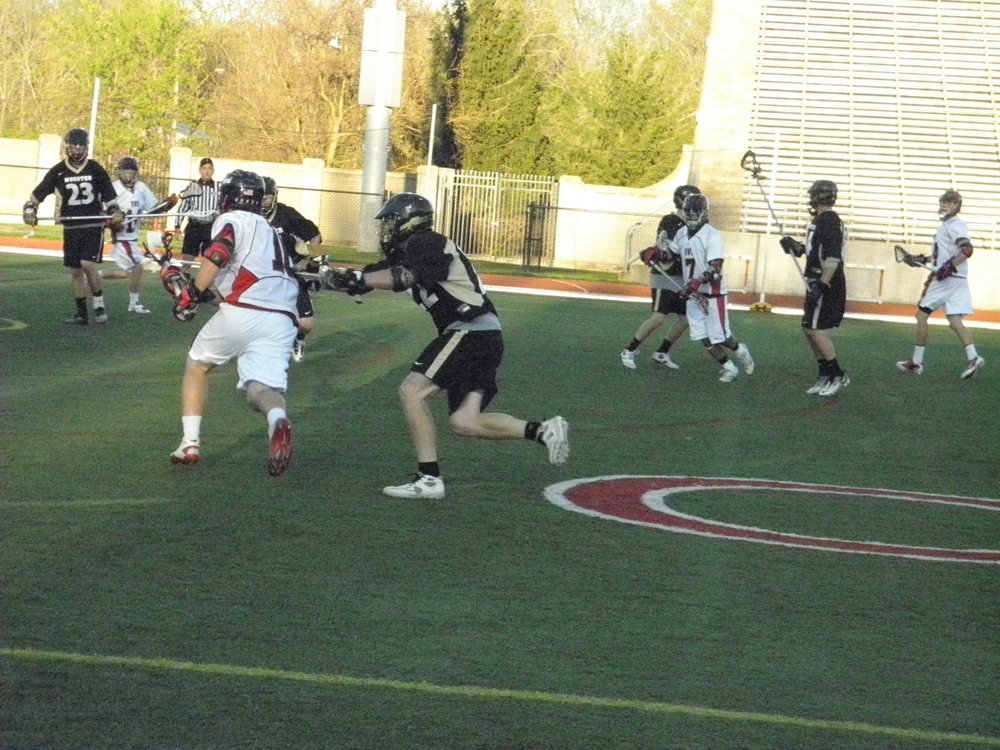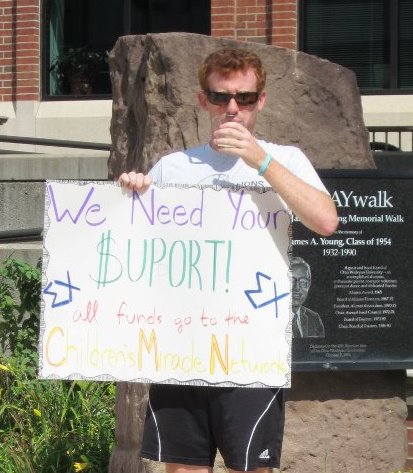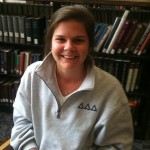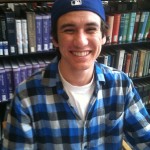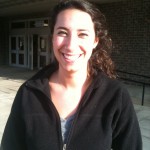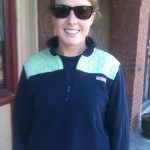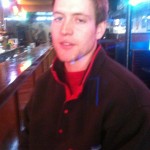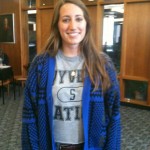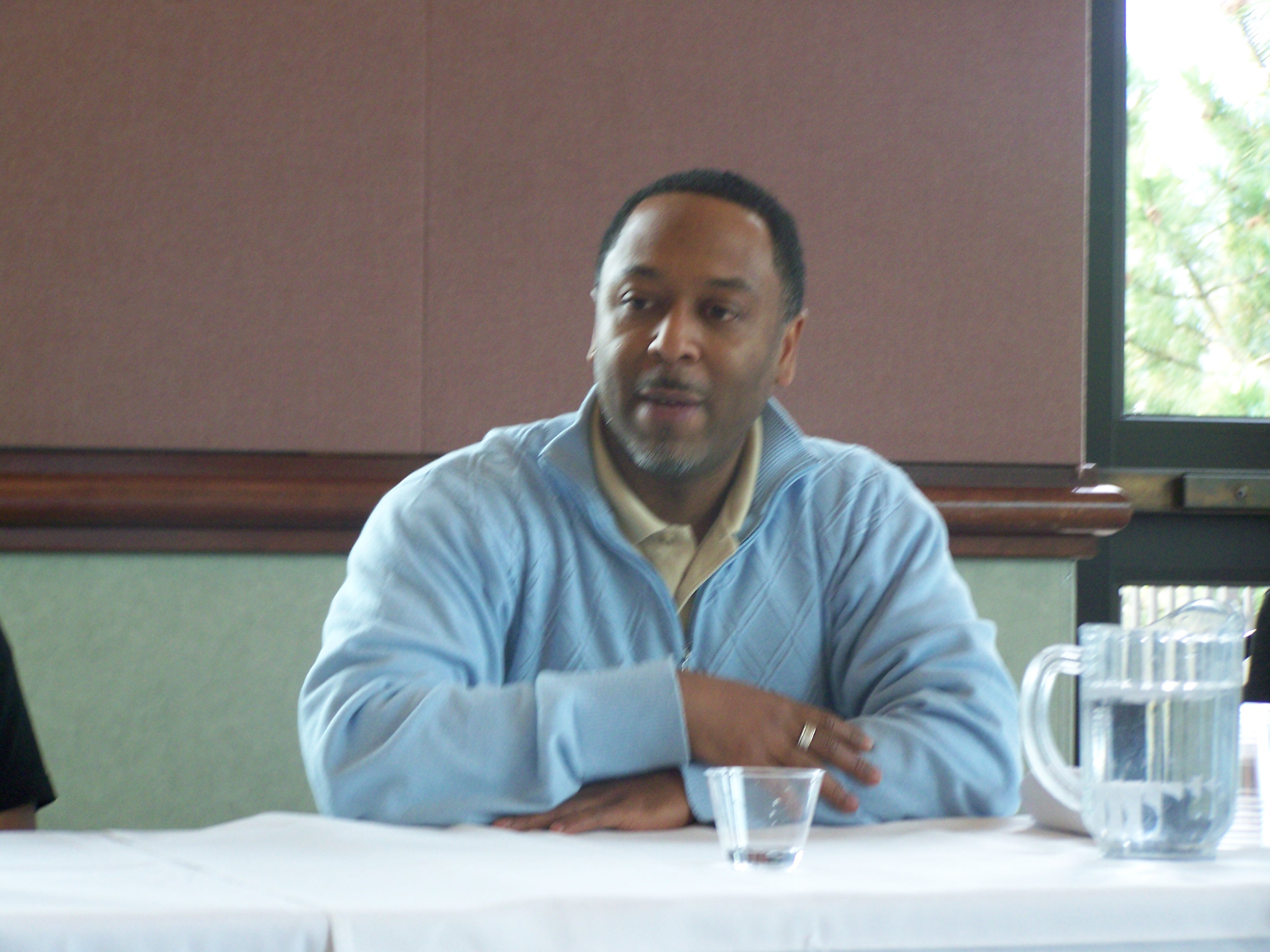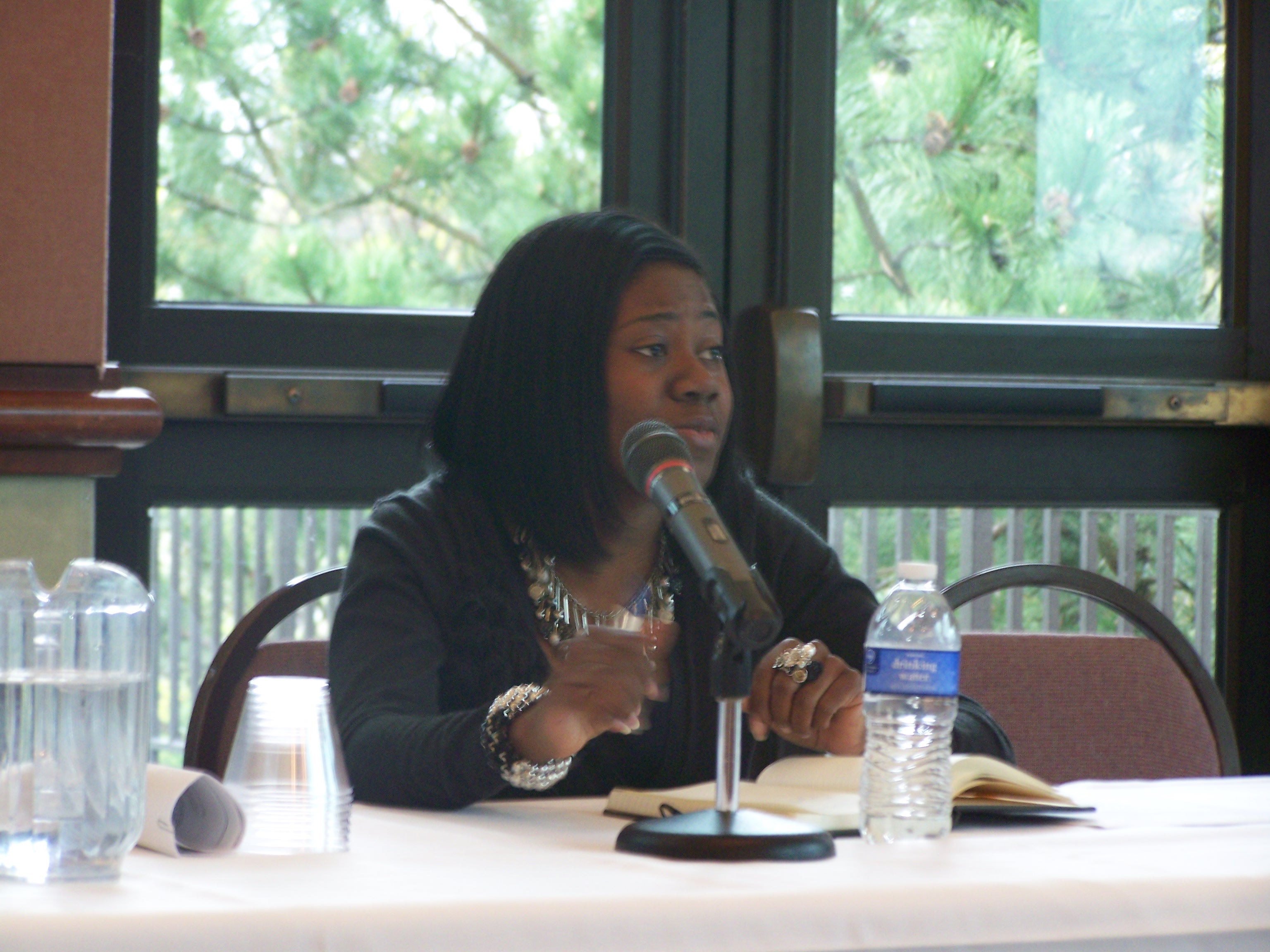Ohio Wesleyan saved a mathematician last Thursday.
OWU survivors of the zombie apocalypse chose Craig Jackson, assistant professor of mathematics, as the faculty member most fitting to help start a new society at the Annual Life Raft debate.
The Student Honors Board has presented the debate since 2002. In the debate, representatives from many disciplines make their case to be saved in light of a zombie apocalypse, based on the usefulness of their chosen field.
The event pitted Jackson against representatives from the music, English, neuroscience and history departments, as well as a “devil’s advocate.”
Jackson put forth mathematics’ propensity for abstract thought as a primary argument for his rescue.
“As much as mathematics teaches you to answer questions, it also teaches you the correct questions to ask,” he said.“Lots of disciplines claim to ‘teach you how to think,’ and lots of them actually do; mathematics just does it best.”
Jackson said math is also a cornerstone of the foundations a new society would be built upon. It would help “monetize a barter economy” and understanding how to keep at bay the initial causes of the hypothetical apocalypse.
“You’ll also need mathematics if you want to know what happened to the climate system when we darken the sky in order to deprive the machines—or the zombies—of their energy source,” he said.
Jackson also cited films like “Jurassic Park,” “Sphere” and “Independence Day” as instances of mathematicians “saving the day.”
“As these examples indicate, when facing a potential apocalypse, you’re going to need a mathematician—our history and cultural mythology virtually demand it,” he said.
Additionally, Jackson said math itself has not been a culprit of “evil.”
“Anything evil that has come out of mathematics has come from physicists,” he said.
In his role as “devil’s advocate,” Lee Fratantuono, associate professor of classics, argued no one should be saved. He also questioned Jackson’s condemnation of physicists.
“There are these dark things mathematics has brought to us—polynomials, L’hopital’s rule, the Unabomber—and then the arrogance to blame a discipline that died,” he said. “The physics people are dead, and math can only mock them, mock their eviscerated corpses.”
In his appeal for rescue, Richard Edwards, professor of music education, said his knowledge of music would provide survivors with “happiness,” “entertainment” and “a unique way to express our emotions and ideas in a way that could rub off and interconnect to all the needs our future society might have.”
According to Edwards, music is a “universal human trait.”
He cited studies that show infants have similar neurological reactions to music as adults.
Toddlers also engage in “spontaneous musical activity,” making up songs about favorite toys.
Edwards also said he would work to cultivate these innate musical abilities in a new society.
“If I had the opportunity to reshape our world in a better way, I would hope to provide a nurturing musical environment for all of our children so that they could become musical and prosperous adults,” he said.
Fratantuono doubted music’s significance to a new civilization.
“I like music,” he said. “The zombies, I don’t know what they think of music. But I have nothing else to say—it’s music.”
Nancy Comorau, assistant professor of English, defended her discipline by first asserting its utility in building communication skills, especially outside the workplace.
“While we might not have the same occupational opportunities after the zombie apocalypse, certainly good communication will be important in rebuilding a society,” she said.
However, according to Comorau, English and literature’s influence on culture, rather than its practicality, was the primary reason it should be saved.
“Broadly writ, literature tells us who we are,” she said. “Good literature, and sometimes even bad literature, describes our world, and in describing it, it makes up our world.”
She also described literature as a “great cannibal” that integrates all other studies—including the others vying for deliverance—into it.
“Allowing English to enter the life raft allows a window into the host of disciplines we learn about, reflect on, research and use to read and write texts, because literature tells us who we are,” she said.
Fratantuono said English is an unstable discipline that “changes its name for nearly every crisis,” and forces itself upon developing minds too early.
“If you put English in this position, you condemn future generations—your children, your grandchildren—to take English 105, where they will be expected to write before they have read before they have read great
literature,” he said.
“They will be expected to be young writers before they have ever tasted what real literature is.”
Jennifer Yates, neuroscience program director, said she would be able to help the survivors understand the behavior of zombies.
Citing a Harvard neuroscientist, Yates said zombies suffer from a condition called “ataxic neurodegenerative satiety deficiency syndrome”—they cannot walk upright, they’re constantly hungry and their brains are deteriorating.
“All that radiation cutting out parts of the brain, that’s no good,” she said.
Yates attributed zombie’s “hyper aggression” to a failing frontal lobe and anterior cingulate cortex, both of which are neurological inhibitors.
“If your anterior cingulated cortex is toast, you’re not holding back all that anger,” she said. “That’s why zombies are cranky.”
Yates also postulated zombies moan because they’re constipated as a result of their narrow diet.
“The reason I would make that argument is that because the brain is very full of fat and protein, and there is
not a lick of fiber in it,” she said.
Fratantuono said it was not neuroscience Yates was representing, but psychology.
“Neuroscience, it’s basically a fancy word for, ‘we’ve come up with crueler and more sadistic ways to torture small animals,’” he said.
Finally, Michael Flamm , professor of history, said his discipline would help survivors form a new society without repeating past mistakes.
“History is to the nation as memory is to the individual,” he said. “As persons become deprived of memory they become disoriented and lost, not knowing where they have been or where they are going.”
Flamm also said history would inherently prevent individuals from becoming too self-centered.
“History is without question the best antidote we have to our delusions of omnipotence and omniscience—self-knowledge,” he said. “From history is the indispensable prelude to self-control, for the nation as well as the individual.”
Fratantuono denied Flamm’s overall assertion that “we are doomed to repeat what we do not understand.”
“They expect us to keep believing this lie, generation after generation, as they tell us nothing that is actually useful to us that wasn’t already taught by the discipline that gave birth to every discipline on this stage—that was classics,” he said.
Fratantuono also said classics students would be better equipped in a post-apocalyptic world.
“I assure you that on the day this apocalypse happens, the things that will be needed on that day—shotguns, quality firearms, quality Scotch—will be in the possession of Classics majors, not in the possession of the denizens of these five disciplines,” he said.
